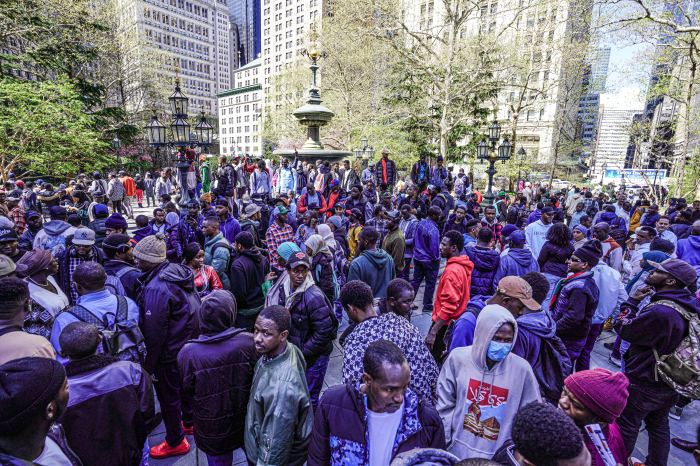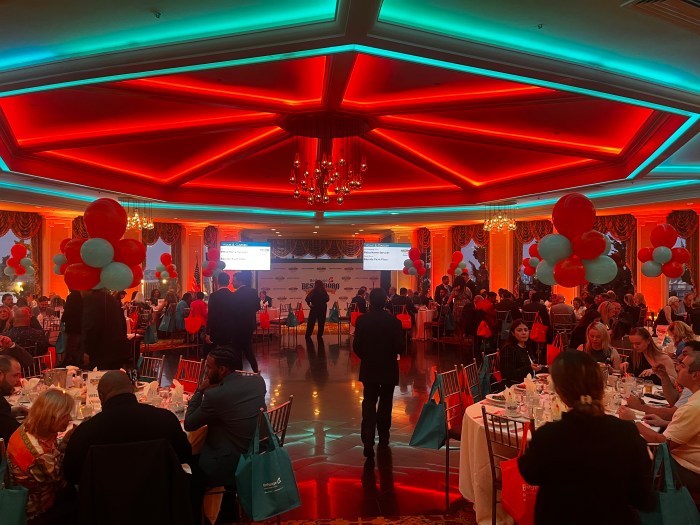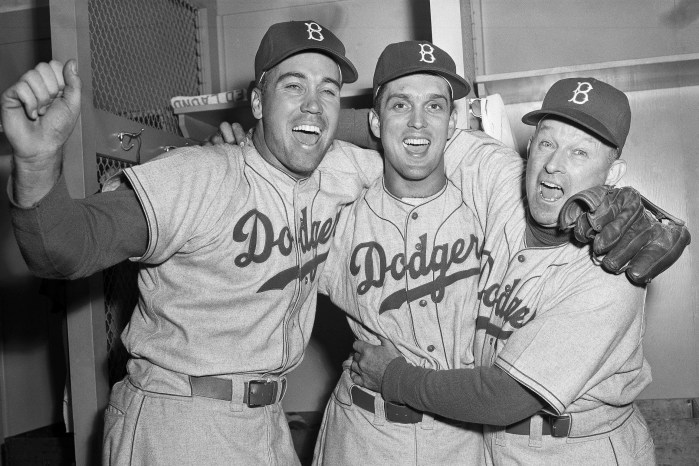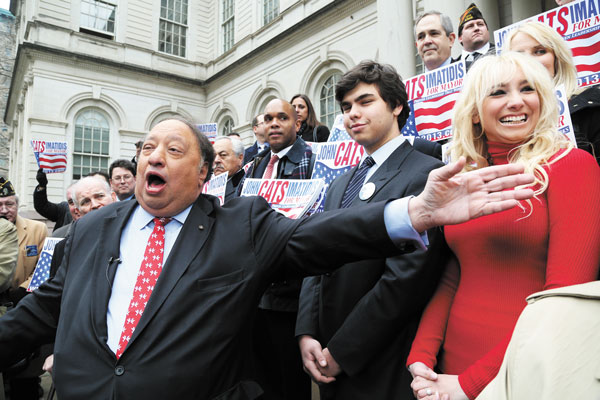
BY LINCOLN ANDERSON | John Catsimatidis, the billionaire owner of the Gristedes supermarket chain, announced his entrance into the race for mayor of New York City last week, running as a Republican.
A main platform of Catsimatidis’s campaign is to bring the World’s Fair back to New York City — to Flushing Meadows-Corona Park, where it occurred in 1939 and 1964. As a youngster who grew up poor, Catsimatidis attended the ’64 fair and was awestruck by it, and he wants others to share that experience.
He immigrated to America from Greece at 6 months old and grew up in Harlem on 135th St., going on to attend Brooklyn Tech High School. Today, he’s worth $3 billion, with most of that generated by an oil company based in Western Canada that he owns.
“If I only had Gristedes, I’d be riding a bicycle,” he quipped during a phone interview with The Villager last Sunday afternoon.
His company has its own pipeline from Canada, which supplies oil “from Buffalo to Pittsburgh,” as he put it — to western New York, western Pennsylvania and eastern Ohio. He owns a chain of 400 Red Apple gas stations and accompanying convenience stores in those areas.
As for his local supermarket empire, he started out with 10 Red Apple markets on Manhattan’s West Side, and later bought the Gristedes chain. He merged the two companies, and today owns 32 supermarkets.
A source of pride for him, he founded both the Columbus Ave. and Amsterdam Ave. festivals.
“I enjoyed creating those festivals,” he said. “I consider myself a creator. I create new things and make them work.”
In that vein, Catsimatidis is a big believer in public-private partnerships. It’s a strategy he feels could have helped create a new hospital after St. Vincent’s Hospital closed three years ago. The free-standing emergency room and comprehensive care center by North Shore-L.I.J. slated for St. Vincent’s former O’Toole building, at 12th St. and Seventh Ave., simply won’t be adequate to meet the area’s health needs, he said.
“I really, really believe that a patient should not be more than 10 or 15 minutes away from a facility by ambulance, to save his life,” he said. “You don’t want a hospital that’s only — pardon my language — a half-assed hospital.
“You know how traffic is in our city — with those bicycle lanes,” he said, quipping, “That was a joke. … We should have everything there to keep a patient alive,” he stressed.
His idea is similar to the 80/20 program for new housing, under which developers get a tax break for making 20 percent of their units affordable. Except, in this case, if the developer would set aside 20 percent of the project for a community use — such as medical facilities — “they can build three or four stories higher,” Catsimatidis offered.
“That could be a home run,” he said of his idea, adding, “That’s why you need a business person at the helm [of the city].”
Regarding the O’Toole site, he said, for example, Bill Rudin, who is residentially redeveloping the former hospital’s main campus, could fund the construction of five floors atop O’Toole, and, in return, would then be allowed to build taller on his project.
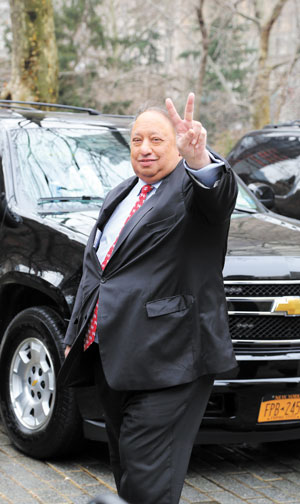 “We go and make a deal with Columbia Presbyterian or N.Y.U. to give them cheap space and maintain the facility,” Catsimatidis explained. “Give them a 99-year lease. Who’s the developer there? Billy Rudin? I’d say, ‘Billy, five extra floors or four extra floors — you have a taller building with better views and the city would operate the hospital facility.’ ”
“We go and make a deal with Columbia Presbyterian or N.Y.U. to give them cheap space and maintain the facility,” Catsimatidis explained. “Give them a 99-year lease. Who’s the developer there? Billy Rudin? I’d say, ‘Billy, five extra floors or four extra floors — you have a taller building with better views and the city would operate the hospital facility.’ ”
The reporter noted that the Rudin residential conversion project is already well underway, and also that the state Department of Health has to approve the opening of new hospitals.
“I don’t know how far along he is with the project,” Catsimatidis replied, “but I’ve given you my idea on what can be done.”
He said he tried to work a similar deal for a project he’s developing in Brooklyn about 10 blocks away from Prospect Park: He wanted to build higher, and in return would have contributed $10 million toward the park. But it didn’t work out as he would have liked.
“They told me, ‘There’s no mechanism in place to do that,’ ” he said.
In Catsmatidis’s thinking, developers would even be able to construct new public schools next to their projects so that they can build bigger.
“I’m just shooting my mouth off — but it’s doable,” he said.
More to the point, Catsimatidis said, St. Vincent’s — which was buried under a crushing mountain of debt — never should have been allowed to close.
“I think it comes down to the fact that a politician of the stature of the mayor of New York has the ability to talk to the governor and make a deal,” he said, adding, “The governor doesn’t want the mayor going on TV and confronting him.”
Asked to describe his politics, it eventually came back to business.
“I am a commonsense New Yorker,” he said. “I am a Republican. Growing up on the West Side of Manhattan, I had a mentor, Murray Siegel,” the former executive director of the West Side Chamber of Commerce. “He taught me one thing — that for the residential community to do well, the business community has to do well.”
At the same time, proclaiming, “I am a liberal,” he expressed compassion for immigrants, saying doctors must help everyone, regardless of their status, if they’re injured or sick.
“Most of all, we are Americans — Americans help all people,” he stated. “I would like to put someone in jail who doesn’t give treatment to that person with a broken arm.”
That said, his daughter, Andrea, is married to Richard Nixon’s grandson, Christopher Nixon Cox, whose father, Ed Cox, is chairperson of the New York State Republican Party.
On the other hand, Catsimatidis is a big fan of Bill Clinton and contributed to his campaign.
“Clinton was my hero,” he said.
“My daughter and her husband went to Africa with Bill Clinton, seven or eight countries,” he said. “My daughter is busy buying shoes in New York. She called me from, I think it was Mozambique, and said — she was nearly crying — ‘These kids don’t have any shoes at all.’ … I told her to make a check to the Clinton Foundation.”
Since he’s an oil company owner, it was natural to ask Catsimatidis his thoughts on fracking.
“It it’s done right, and monitored carefully, then it should be safe,” he said. “But you have to have continuous monitoring.”
However, he said, in those parts of Pennsylvania where fracking is happening, the returns are great.
“To use an expression of immigrants,” he said, “the streets of those counties are lined with gold.”
While Catsimatidis supported Bill Clinton, he didn’t back President Obama, but rather Mitt Romney in the past presidential election.
“Obama started class warfare every day,” he charged. “He blamed the 2 percent of the country for the wrongs.”
Sanctioning entire companies for financial malfeasance is just unfair, he said.
“Don’t hurt a whole banking company,” he stressed. “What about the secretaries? Prosecute the wrongdoers! What does the secretary do to you?”











